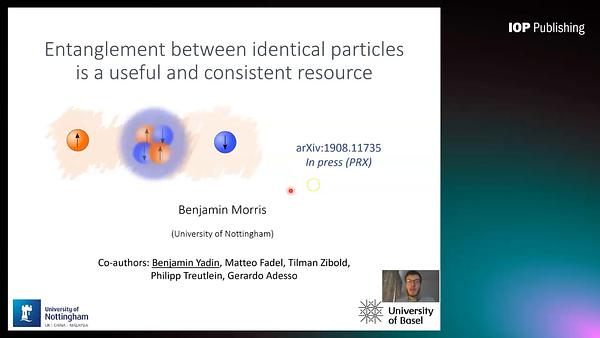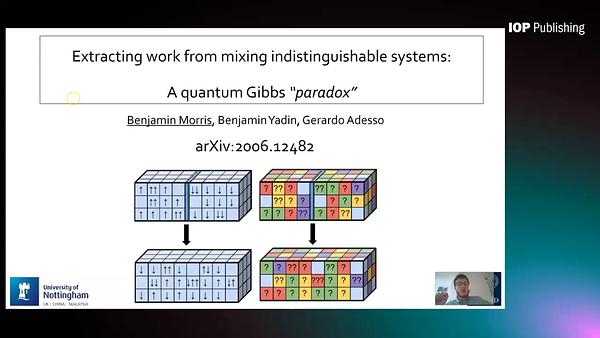Benjamin Morris
University of Nottingham
thermodynamics
entanglement
statistical mechanics
resource theory
bosons
macroscopic
representation theory
2
presentations
SHORT BIO
I am a final year PhD student working under the supervision of Prof Gerardo Adesso within the Quantum Correlations Group at the University of Nottingham. My current research looks at foundational topics within the fields of Quantum Thermodynamics and Quantum Information. With a specific focus on attempting to determine the role of thermodynamics in, and emergence from, Quantum Mechanics.
Presentations

Entanglement between identical particles is a useful and consistent resource
Benjamin Morris and 5 other authors

Extracting work from mixing indistinguishable systems: A quantum Gibbs "paradox''
Benjamin Morris and 2 other authors